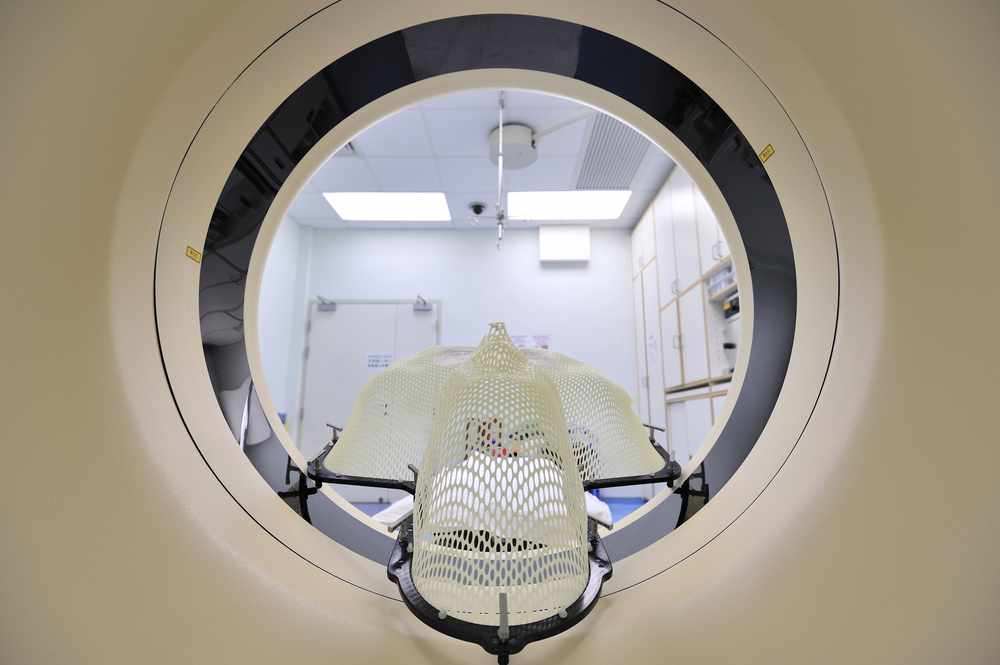 ROCHESTER, Minn. — Mayo Clinic physicians will present findings at the 2016 American Society for Therapeutic Radiology and Oncology (ASTRO) Annual Meeting Sept. 25-28 in Boston. Key Mayo Clinic-led studies include:
ROCHESTER, Minn. — Mayo Clinic physicians will present findings at the 2016 American Society for Therapeutic Radiology and Oncology (ASTRO) Annual Meeting Sept. 25-28 in Boston. Key Mayo Clinic-led studies include:
Radiosurgery, not whole-brain radiotherapy should be the standard of care following surgical resection of metastatic brain tumors
Embargoed until Sunday, Sept. 25, at 3:15 p.m. EDT
Radiosurgery to the surgical cavity following surgery to remove metastatic brain tumors is effective in killing residual cancer and results in fewer cognitive problems and better quality of life than whole-brain radiotherapy, according to the results of a phase III, multi-institutional, cooperative group study presented today at the 2016 ASTRO annual meeting.
“This trial confirms radiosurgery to the surgical cavity is a viable treatment and should be one of the standards of care after resection of brain metastases,” says lead author Paul Brown, M.D. a radiation oncologist at Mayo Clinic. “We found no difference in survival whether a patient receives postoperative radiosurgery or whole-brain radiotherapy; however, radiosurgery avoids the cognitive damage caused by whole-brain radiotherapy and other unpleasant side effects, such as hair loss, fatigue and skin redness.” Dr. Brown adds that recovery after radiosurgery is typically shorter than with whole-brain radiotherapy, so patients can restart systemic therapies such as chemotherapy sooner.
Effective treatments for mouth sores caused by radiation therapy
Embargoed until Sunday, Sept. 25, at 3:15 p.m. EDT
Pain from oral mucositis, or mouth sores, in patients receiving radiation therapy for cancers of the head and neck was significantly reduced by an oral rinse of doxepin and an oral rinse containing diphenhydramine, lidocaine and antacids, known as Magic Mouthwash, compared to a placebo. These were the findings of a three-arm, multi-institution, randomized, double blind, placebo-controlled, phase III trial, led by Robert Miller, M.D., a radiation oncologist at Mayo Clinic. Dr. Miller presented his findings at today at the 2016 ASTRO annual meeting.
“We published a study in 2012 showing that an oral rinse of doxepin reduced oral mucositis-related pain, compared to placebo,” says Dr. Miller. “However, there were no large randomized controlled trials studying the potential benefits of Magic Mouthwash.”
Dr. Miller and his colleagues studied 275 patients between November 2014 and May 2016 and found that pain related to oral mucositis was significantly less following both doxepin and Magic Mouthwash rinses versus placebo. They also found that both doxepin and magic mouthwash rinses were well tolerated by patients.
Researchers identify specific sites of prostate cancer recurrence following radiation therapy using C-11 choline positron emission tomography scanning
Embargoed until Tuesday, Sept. 27, at 4:45 p.m. EDT
A team of Mayo Clinic researchers have used C-11 choline positron emission tomography scanning (CholPET) to identify anatomic patterns of prostate cancer recurrence in patients who have a rising prostate-specific antigen level (PSA) after having received radiation therapy to treat their cancer. Researchers found that most recurrences were localized to the pelvis (prostate and or surrounding tissue). Using these data, they were able to generate a tool that estimates the risk of recurrence outside of the pelvis. This information may be an aid in clinical decision -making.
“Management of recurrent prostate cancer after radiation therapy depends on accurately identifying the site of the recurrent disease,” says William Parker, M.D., a urologic oncology resident at Mayo Clinic. “We found that CholPET identified the site of recurrence in 87 percent of patients who had a rising PSA after radiation therapy, most of whom had disease that could potentially benefit from further salvage therapy. Our findings underscore the importance of advanced imaging in tailoring a treatment plan for patients who have a rising PSA following primary radiation therapy.”
C-11 choline positron emission tomography (PET) scanning useful in locating prostate cancer recurrence following surgery and radiation therapy.
Embargoed until Tuesday, Sept. 27 4:45 pm ET
Using C-11 choline positron emission tomography, Mayo Clinic investigators observed very few sites of prostate cancer recurrence within prostate bed of patients who had previously undergone prostatectomy followed by either salvage or adjuvant radiotherapy. This is the finding of a study presented today at the 2016 ASTRO annual meeting by Jaden Evans, M.D., a radiation oncology resident at Mayo Clinic.
“C-11 Choline PET scanning is a useful means of evaluating sites of prostate cancer recurrence following radiation therapy,” says Dr. Evans. "It provides an opportunity to improve our ability to locate disease recurrence and hopefully an earlier stage in disease progression when the burden of disease is lower."
MEDIA CONTACT: Joe Dangor, Mayo Clinic Public Affairs, 507-284 5005, newsbureau@mayo.edu
Researchers studied more than 2800 patients with prostate cancer who were scanned using CholPET between 2008 and 2015. 391 patients had previously received either definitive, adjuvant, salvage or palliative radiotherapy. Of these patients, researchers identified 41 patients who had undergone prostatectomy followed by prostate bed only radiotherapy and who subsequently experienced a biochemical relapse with at least one site of recurrence identified by CholPET.
Researchers examined sites of recurrence with respect to radiation fields and patient anatomy. Researchers noted that the majority of recurrence sites occurred in lymph nodes outside of the previously irradiated field.
“Perhaps our most compelling observation in this cohort was very few in-field sites of recurrence,” says Dr. Evans. “We interpret these findings as evidence that post-prostatectomy radiotherapy is effective.”
###
About Mayo Clinic Cancer Center
As a leading institution funded by the National Cancer Institute, the Mayo Clinic Cancer Center conducts basic, clinical and population science research, translating discoveries into improved methods for prevention, diagnosis, prognosis and therapy. For information on cancer clinical trials, call the clinical trial referral office at 1-855-776-0015 (toll-free).
About Mayo Clinic
Mayo Clinic is a nonprofit organization committed to clinical practice, education and research, providing expert, whole-person care to everyone who needs healing. For more information, visit http://www.mayoclinic.org/about-mayo-clinic or https://newsnetwork.mayoclinic.org/.







